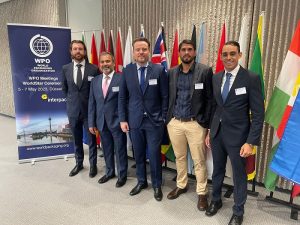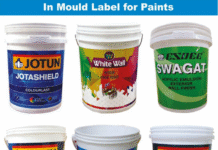Packem Umasree, a joint venture between Brazil’s Packem and Gujarat-based Umasree Texplast, has achieved a significant milestone by becoming the world’s first company to manufacture 100% sustainable flexible intermediate bulk containers (FIBC) or jumbo bags using recycled PET (used PET bottles). The company currently operates a plant in Brazil and is in the process of building a second plant in Ahmedabad, India – set to be operational in the first quarter of 2024.
Punit Gopalka, managing director of Packem Umasree, expressed his pride in the company’s pioneering achievement. “We are the world’s first company to manufacture FIBC using rPET (used PET bottles). Our Brazil plant caters to the local market, while the upcoming India plant will serve markets outside of Brazil. We anticipate exporting a significant portion of the Ahmedabad plant’s output to regions such as North America and Europe. With the completion of the new plant, Packem Umasree will establish itself as a leading global supplier of sustainably produced FIBCs.”
Packem and Umasree announced their joint venture last year, with Umasree holding a 49% equity stake and Packem 51%. The forthcoming India plant will mark the first production facility in India to manufacture FIBC/jumbo bags using 100% rPET (used PET bottles) through the innovative concept of bottle-to-bag recycling.
The Ahmedabad plant is expected to employ nearly 700 individuals, bringing numerous direct local job opportunities. Packem Umasree made strategic investments in Starlinger production equipment during K 2022 to facilitate the production of FIBCs from rPET at the new plant.
Gopalka emphasized the environmental and social benefits of the new plant, in addition to creating jobs. He says India’s strategic location will enable Packem Umasree to effectively serve the global market.

“We are excited about the new plant as it will bring a lot of environmental and social benefits to India, in addition to creating hundreds of direct local jobs. India will be a strategic location to serve the global market,” he said.
FIBCs are used for the bulk transportation and storage of items such as food, milk powder, chocolate powder, agro products, chemicals, PVC, polymers and building materials, among others.
Successful Interpack 2023
The sustainable FIBCs made from rPET (used PET bottles) were showcased by Packem Umasree at Interpack 2023, a prominent packaging exhibition.
Gopalka highlighted the multiple advantages of manufacturing FIBCs from rPET, including its recyclability and suitability for food items, making it an environment-friendly and sustainable solution. The company received positive feedback for its FIBCs at Interpack.
“The biggest advantage of PET is that it can be recycled multiple times. Recycled PET can also be made contamination-free for use in packaging food products. So, manufacturing FIBCs from rPET is extremely environmentally friendly and addresses the issue of sustainability. We got a very good response for the FIBCs at Interpack. There is a good response from corporates for using rPET FIBC, enabling them to attain their sustainable targets by availing of carbon credits. We see a lot of potential in FIBCs made from rPET,” he said.
WPO award for Packem at Interpack 2023
Further enhancing its reputation, Packem was honored with the prestigious WPO international award at Interpack 2023 for its ‘First fertilizer Bag-to-Bag made from 100% rPET’. The WPO award is regarded as the largest and most significant international recognition in the packaging industry. With 488 projects from 41 countries in the competition, Packem received the award during a special ceremony.
Punit Gopalka expressed his appreciation for the recognition. “This is a great honor as the WPO awards are the most important for the packaging industry. Such accolades inspire us to continue pushing the boundaries and achieve even greater milestones.”
With its commitment to sustainability and innovative manufacturing practices, Packem Umasree is poised to revolutionize the FIBC industry and contribute to a greener and more environmentally conscious future.











